Geometry worksheets activities for Ages 6-7
6 filtered results
-
From - To
Discover engaging geometry worksheet activities designed specifically for children ages 6-7! Our vibrant, interactive resources help young learners develop essential spatial awareness and shape recognition skills while having fun. From sorting shapes and identifying angles to exploring patterns, these worksheets cater to diverse learning styles and foster creativity. Perfect for class assignments or home practice, our geometry activities encourage critical thinking and problem-solving abilities in a playful manner. Printable and easy to use, they serve as a valuable tool for early-grade teachers and parents alike. Start your child's geometric journey today and watch their confidence grow!
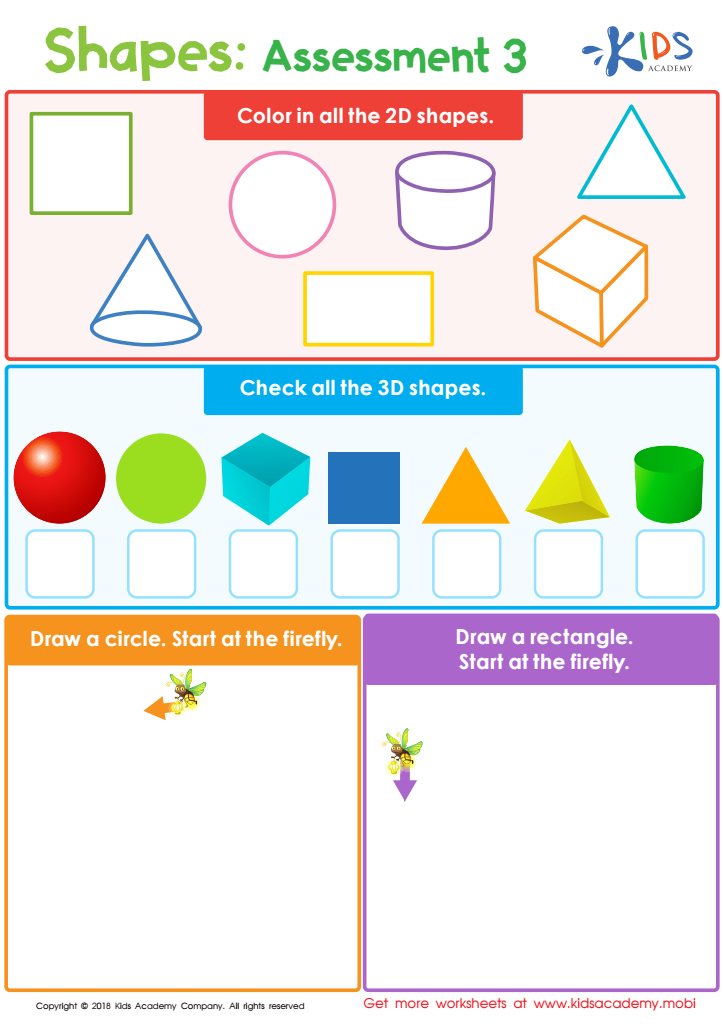

Shapes: Assessment 3 Worksheet
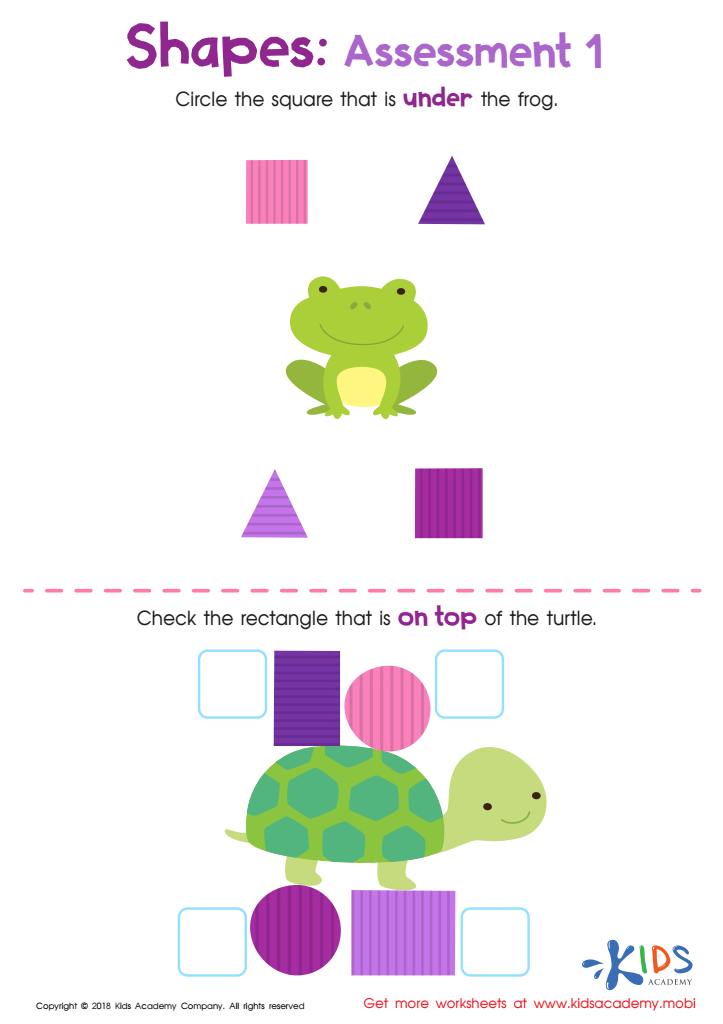

Geometry – Assessment 1 Worksheet
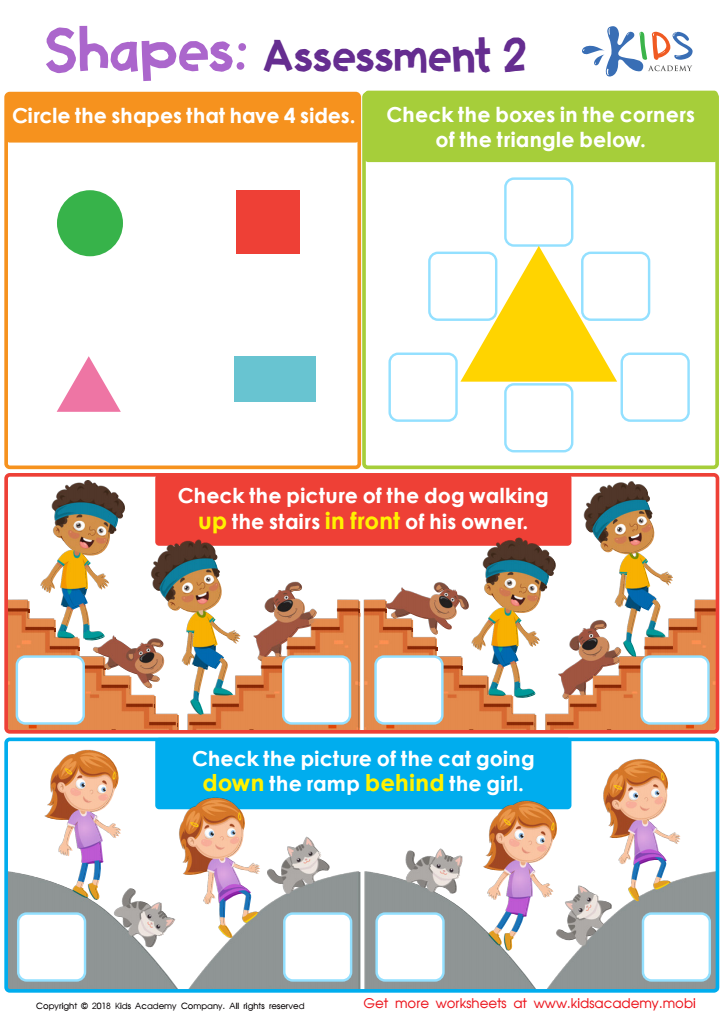

Shapes: Assessment 2 Worksheet
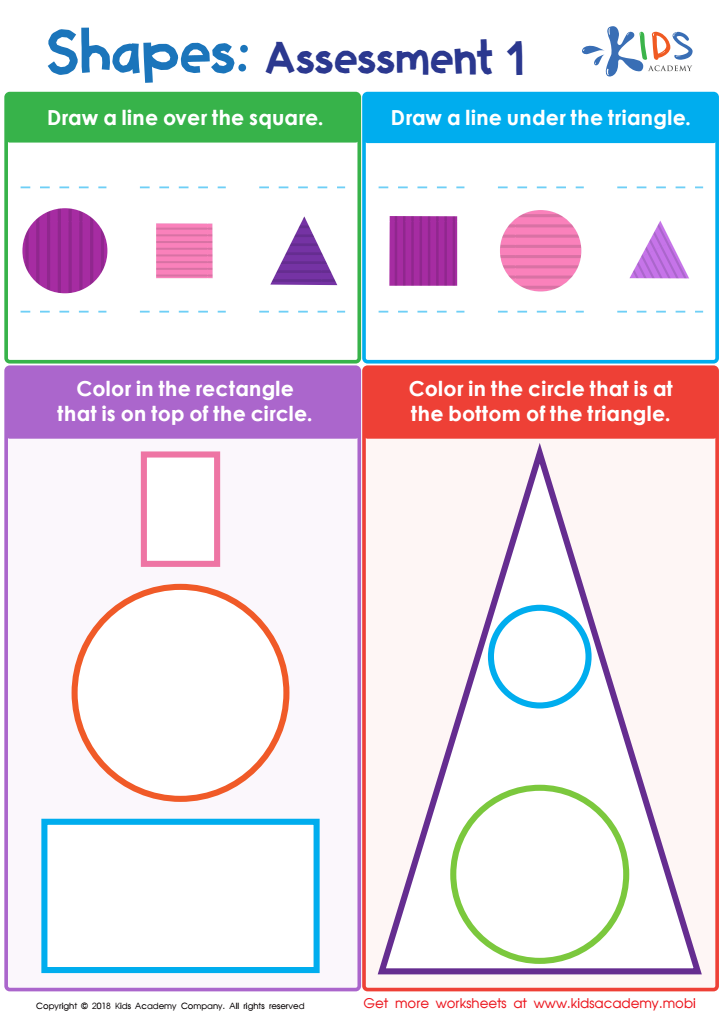

Shapes: Assessment 1 Worksheet
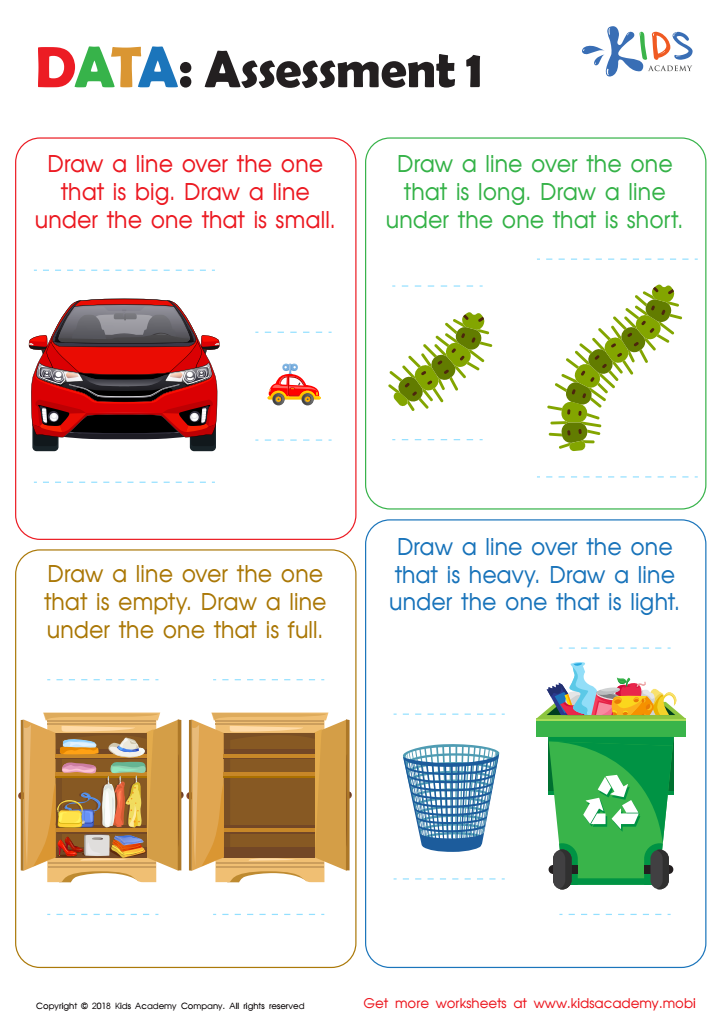

Data: Assessment 1 Worksheet
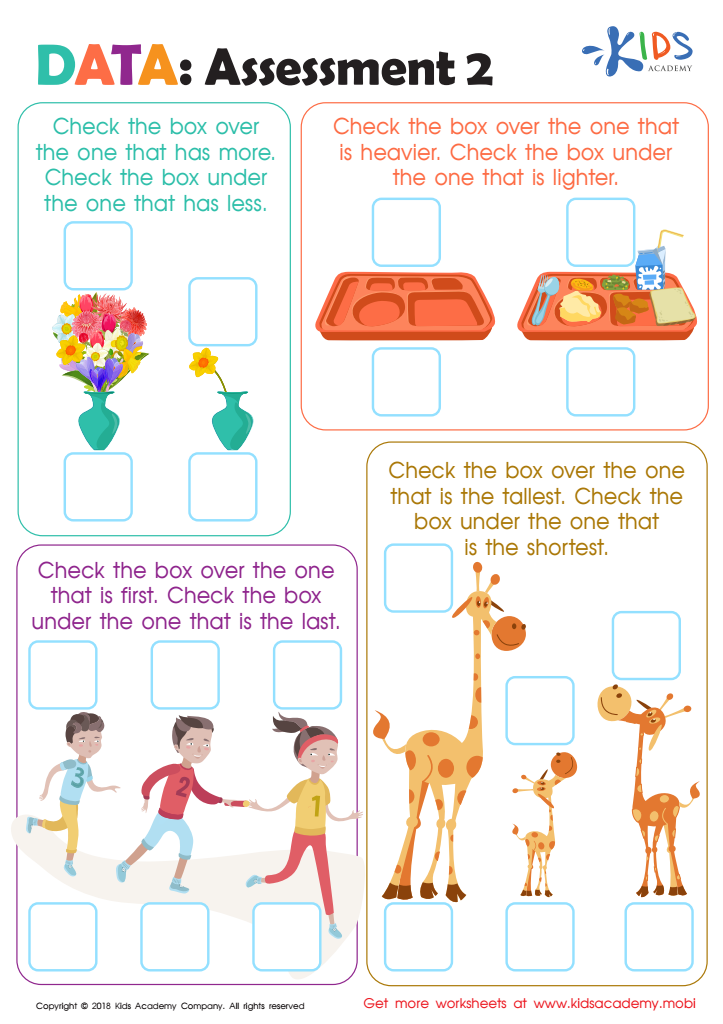

Data: Assessment 2 Worksheet
Geometry activities for children aged 6-7 are crucial for several reasons. At this developmental stage, children begin to make sense of the world around them through shapes and spatial relationships. Engaging in geometry helps foster critical thinking, problem-solving skills, and an understanding of mathematical concepts that lay the foundation for future learning in mathematics and other disciplines.
Incorporating fun geometry activities can enhance children's cognitive development; they learn to identify, compare, and classify different shapes. Additionally, hands-on activities promote active learning, helping keep young learners engaged and curious. Teachers and parents can introduce simple tasks like shape sorting, constructing 3D figures with blocks, or drawing geometric patterns, making learning both enjoyable and interactive.
Furthermore, these activities encourage collaborative skills as children often work together to explore concepts, promoting communication and teamwork. Early exposure to geometry enhances spatial reasoning, which is linked to academic success in various subjects, including science and engineering later on. In summary, investing time in geometry activities fosters essential skills that contribute significantly to children's overall development, laying a strong foundational skill set that will serve them well throughout their educational journeys.
 Assign to My Students
Assign to My Students









.jpg)










